Division Worksheets for Ages 3-5
7 filtered results
-
From - To
Our Division Worksheets for ages 3-5 provide a fun and engaging way to introduce young learners to the basics of division. Designed to foster a foundational understanding, these worksheets feature age-appropriate problems with visual aids and simple instructions to help children grasp the concept of sharing and grouping. Each worksheet promotes critical thinking and problem-solving skills, making learning enjoyable and stimulating for young minds. With charming illustrations and a gentle progression of difficulty, our worksheets ensure that early childhood math experiences are positive and empowering, setting the stage for future numerical success. Perfect for preschoolers and kindergarteners!
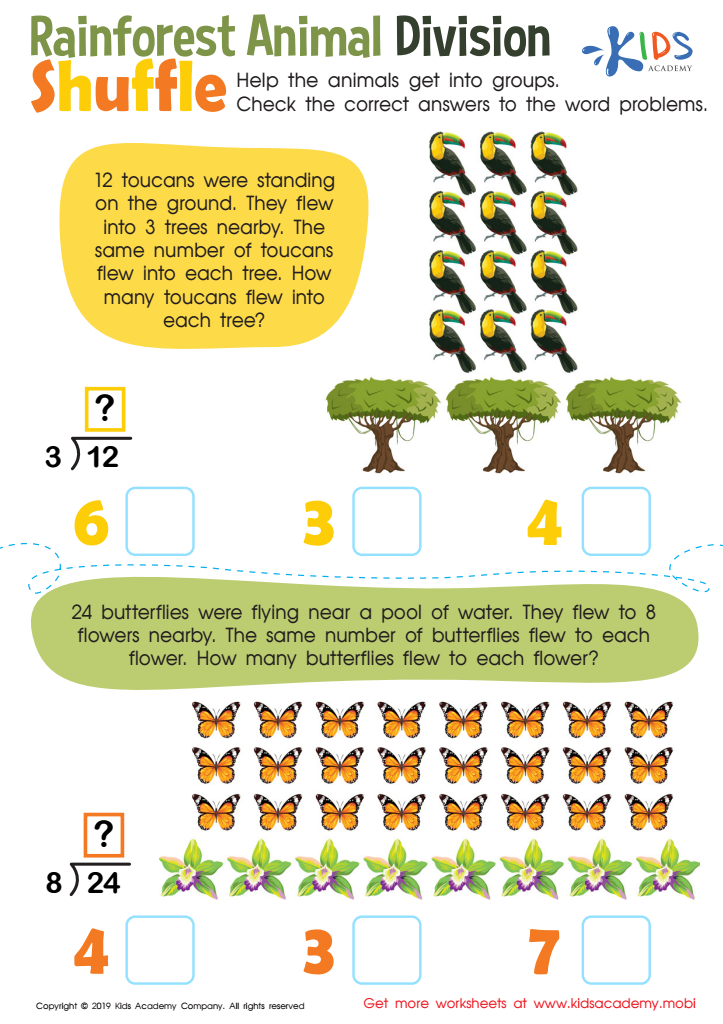

Rainforest Animal Division Worksheet
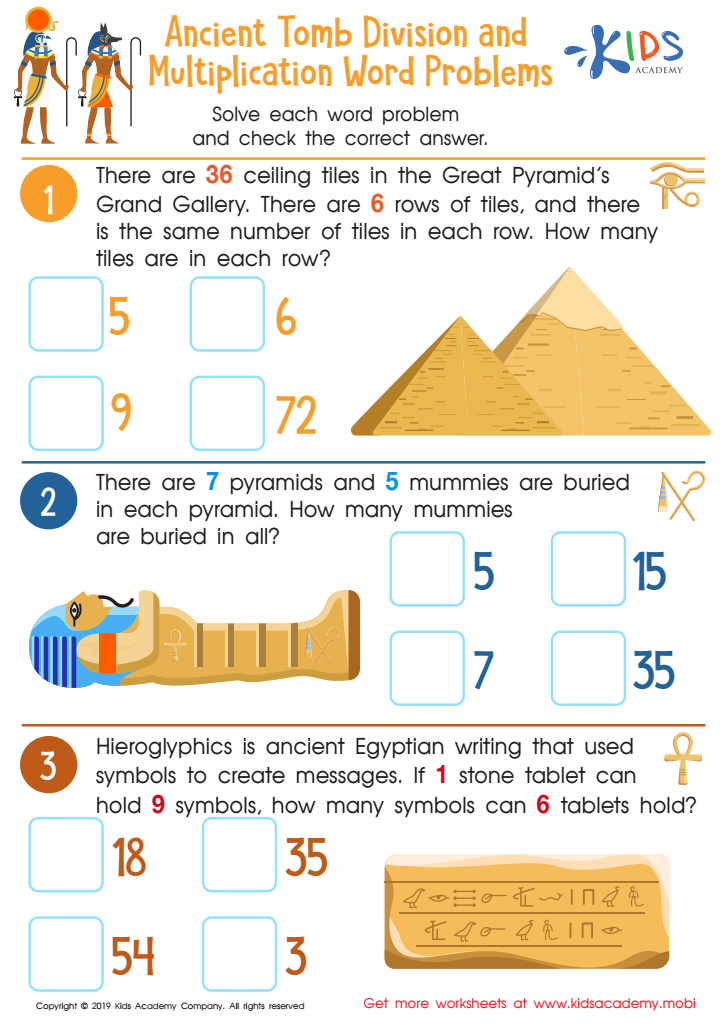

Ancient Tomb Division and Multiplication Word Problems Worksheet
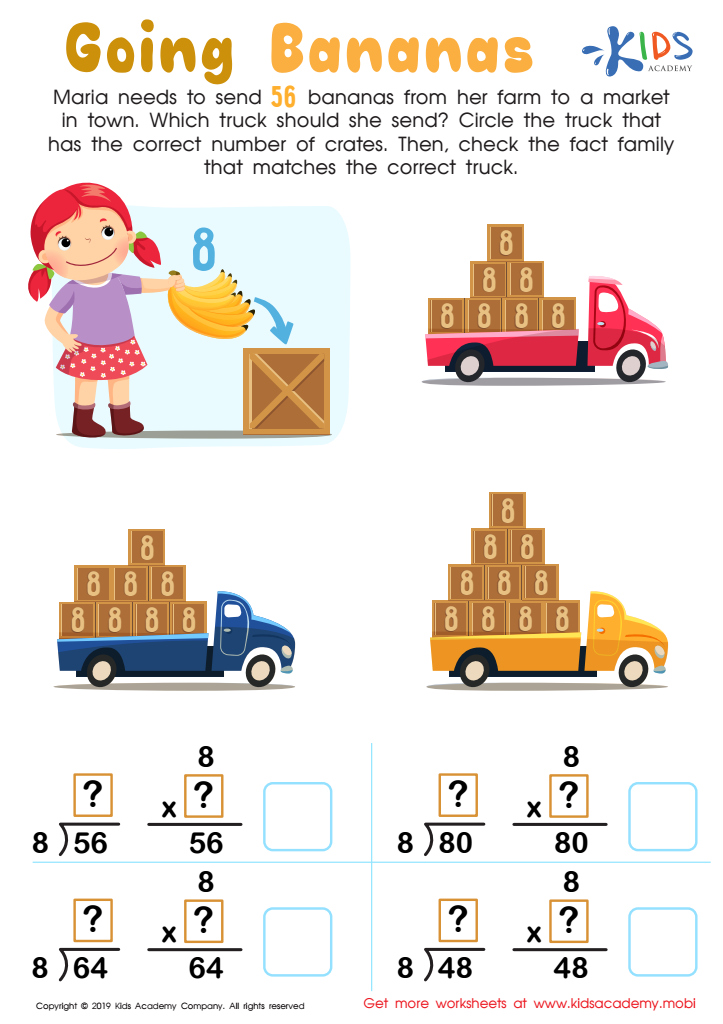

Going Bananas Worksheet


Pollinator Positions Worksheet
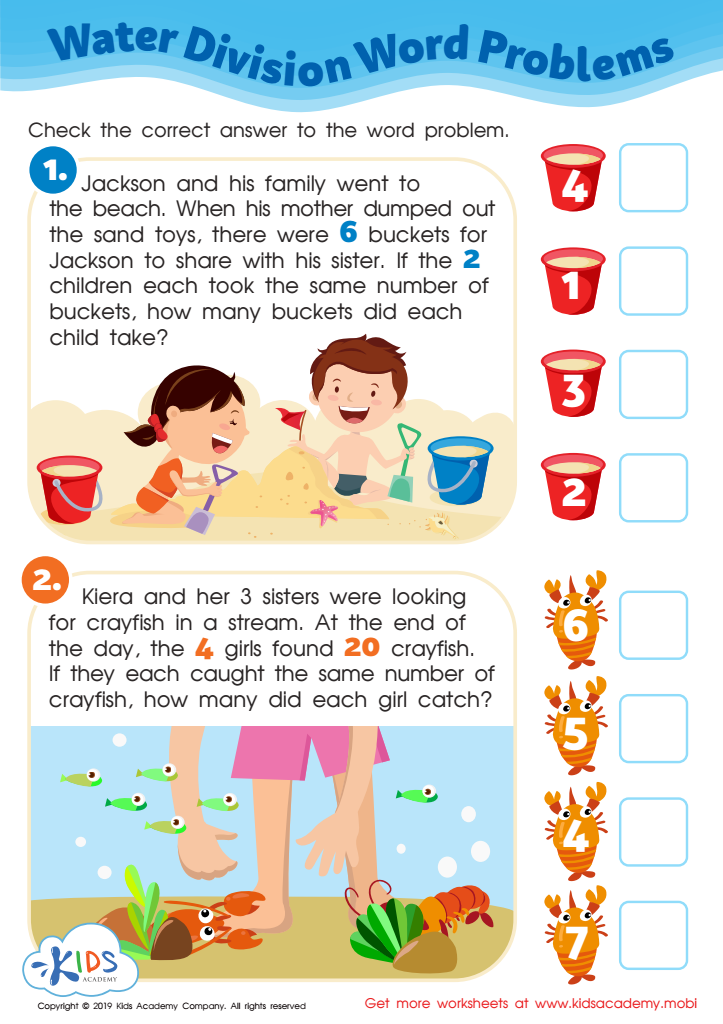

Water Division Word Problems Worksheet
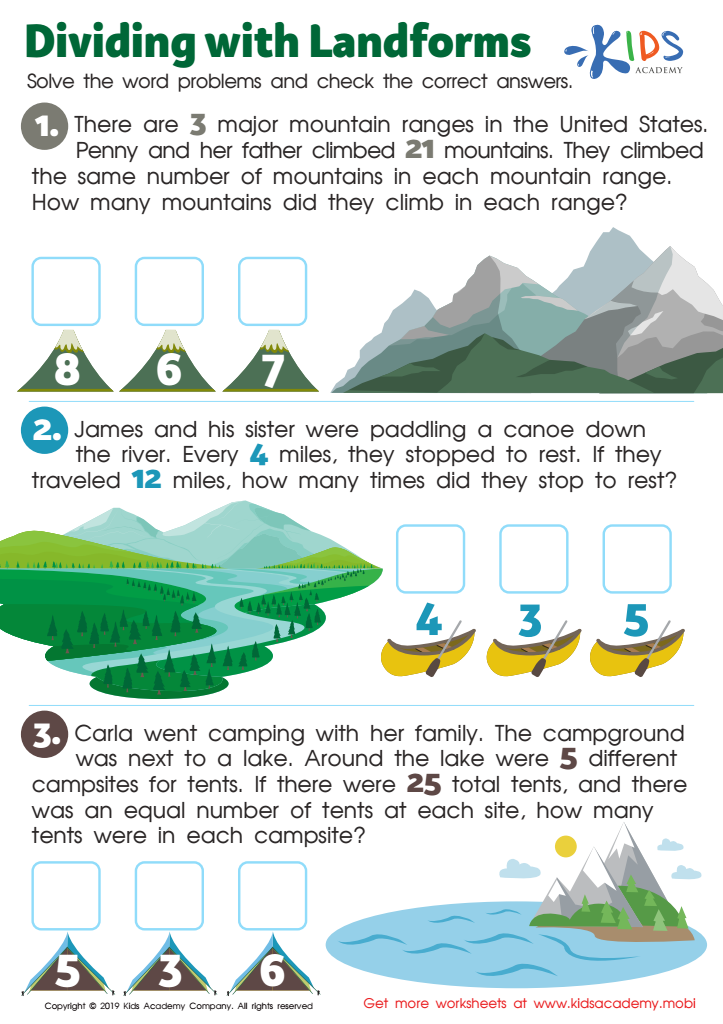

Dividing with Landforms
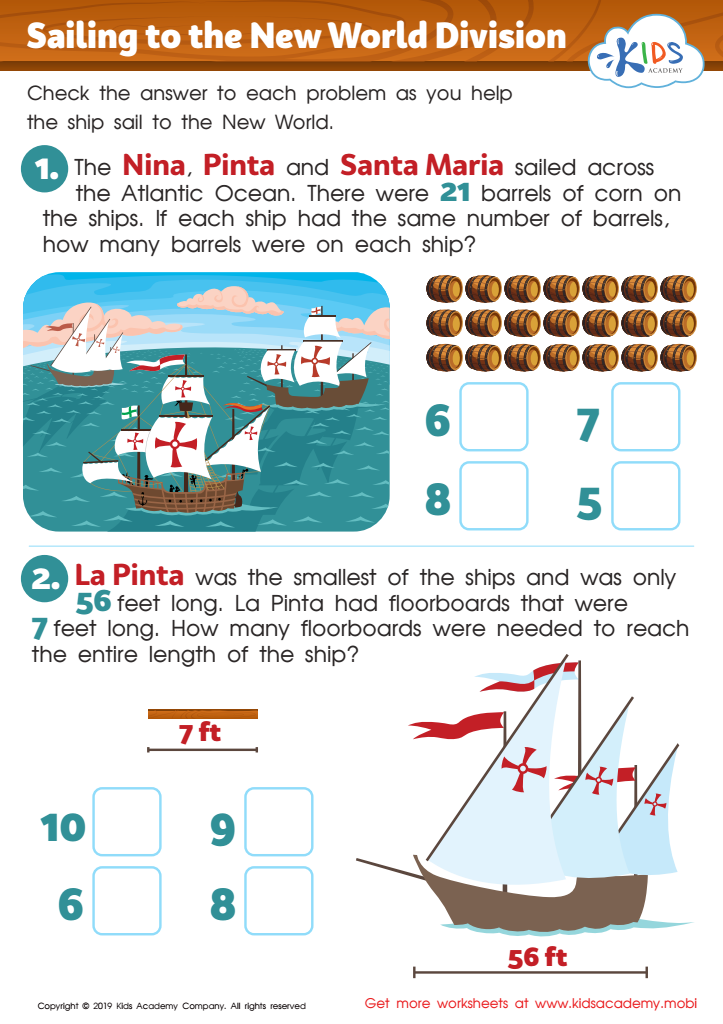

Sailing to the New World Division Worksheet
Even though division is typically introduced in later elementary school, laying the groundwork for mathematical concepts at ages 3-5 is incredibly beneficial in fostering a child's cognitive development. Young children are naturally curious and love exploring new ideas, and introducing basic mathematical concepts helps cultivate this curiosity. While abstract division might be too complex for toddlers, foundational skills such as sharing, grouping, and understanding quantities can prepare them for future mathematical learning.
At its core, division is about fair sharing and group organization, concepts that children encounter in everyday activities like sharing toys or snacks. Encouraging activities that involve splitting items evenly among friends or sorting objects into groups can develop a child’s understanding of these foundational ideas. These early experiences enhance their problem-solving skills, improve their ability to think logically, and introduce them to the joy of discovering patterns—skills that are transferable across many areas of learning.
Additionally, early exposure to these concepts in a fun, playful environment can build a positive attitude toward mathematics. Instilling confidence and interest in math at a young age reduces anxiety and cultivates a lasting appreciation for numbers. By nurturing these early math skills, parents and teachers set the stage for a child’s academic success and lifelong learning.

 Assign to My Students
Assign to My Students





















